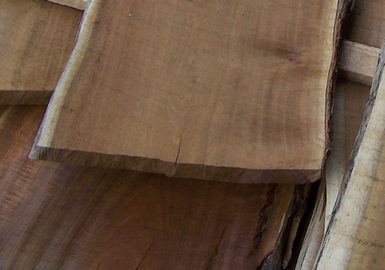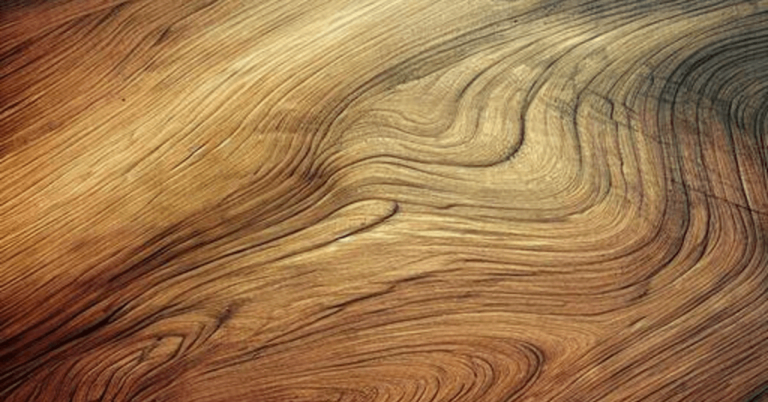How Long Does It Take To Install Hardwood Floors
Installing hardwood floors can be a great way to give your home a fresh new look. However, before starting the…
Installing hardwood floors can be a great way to give your home a fresh new look. However, before starting the installation process, one question that often comes up is, ‘how long does it take to install hardwood floors?’
The answer to this question can vary depending on several factors, such as the type of hardwood you choose and whether you decide to hire a professional or do it yourself.
To start, it’s important to understand that there are different types of hardwood flooring, each with its own installation requirements and time frames.
Before beginning the installation process, it’s essential to prepare your space correctly. This includes removing any existing flooring, ensuring that the subfloor is level and free from damage, and measuring the area to ensure you have enough materials.
With proper preparation, you can ensure that the installation process goes smoothly and efficiently, ultimately saving you time and money.
Factors Affecting Installation Time
To speed up the process of laying down your new hardwood flooring, it’s important to consider the various factors that impact installation time.
Firstly, the size of the area to be covered plays a significant role in determining the estimated timeline for the project. The larger the space, the more time it will take to complete the installation.
Additionally, the type of hardwood being used will also affect the installation time. Some hardwoods are easier to install than others, and may require less time for installation.
Another factor that can impact the installation time of hardwood floors is the level of preparation that is done prior to installation. One of the most common mistakes that people make is failing to properly prepare the subfloor. Any unevenness or imperfections in the subfloor can cause issues during installation and prolong the process. It’s imperative that the subfloor is level and free of any debris or obstructions that could hinder the installation process.
Finally, the expertise of the installers also plays a role in determining how long the installation process will take. Experienced professionals who specialize in hardwood flooring installation are likely to work more efficiently and complete the job in a shorter amount of time. On the other hand, DIY projects or inexperienced installers may take longer to complete the installation and may even make mistakes that could prolong the process even further.
Preparation Before Installation
Before you can start putting in your beautiful new hardwood floors, there are a few things you’ll need to do first.
One of the most important steps is to prepare the room where you’ll be installing the floors. This includes removing all furniture and any existing flooring.
You’ll also need to ensure that the subfloor is in good condition and level. If there are any dips or bumps, you’ll need to address them before you can proceed. To prepare the subfloor, you’ll need to have the right tools on hand.
This includes a pry bar, hammer, utility knife, and a circular saw. You’ll also need a level, chalk line, and measuring tape.
With these tools, you can check the subfloor condition and make any necessary repairs. This could involve replacing damaged sections of subfloor or adding a layer of plywood to create a level surface.
Once you’ve prepared the room and the subfloor, you’re ready to start the actual installation process. By taking the time to properly prepare the space beforehand, you’ll ensure that your hardwood floors look great and last for years to come.
So, before you dive in, make sure you have all the tools you need and have thoroughly checked the subfloor condition. With these steps completed, you’ll be well on your way to enjoying your beautiful new floors.
The Installation Process
Now that the room is prepped and the subfloor is level, it’s time to get started on installing your stunning new hardwood flooring. There are different types of hardwood flooring such as solid, engineered, and laminate. Solid hardwood floors are made of a single piece of wood and are the most expensive type of flooring. Engineered hardwood floors are made of several layers of wood and are more affordable. Laminate flooring, on the other hand, is made of synthetic materials that resemble wood and is the most budget-friendly.
The cost of installation depends on several factors including the type of hardwood flooring you choose, the size of the space, and the complexity of the installation process. On average, solid hardwood flooring installation costs $8 to $12 per square foot, while engineered hardwood flooring installation costs $6 to $9 per square foot. Laminate flooring installation costs around $3 to $7 per square foot. It’s important to note that these prices do not include additional costs such as the cost of removing old flooring and the cost of labor.
The installation process of hardwood flooring involves several steps. First, the flooring should be acclimated to the room’s temperature and humidity for at least 48 hours. Then, the hardwood flooring is laid out in the room in a staggered pattern. The boards are then nailed or glued to the subfloor. Once the flooring is installed, it’s sanded to smooth out any rough spots and then finished with a protective coat of sealer. The entire installation process can take anywhere from a few days to a week, depending on the size of the space and the complexity of the installation process.
Average Installation Times for Different Types of Hardwood
You’ll find it helpful to know the average installation times for different types of hardwood, as this can impact your overall timeline for completing your flooring project.
The installation process for hardwood floors varies depending on the wood species differences and installation techniques.
Here are some average installation times for different types of hardwood:
-
Solid hardwood: This type of flooring typically takes longer to install due to the need for acclimation and nailing down each plank individually. On average, solid hardwood can take anywhere from 3 to 5 days to install.
-
Engineered hardwood: This type of flooring is easier and quicker to install since the planks are pre-finished and can be glued down or floated over a subfloor. On average, engineered hardwood can take anywhere from 1 to 3 days to install.
-
Prefinished hardwood: Prefinished hardwood is similar to engineered hardwood in terms of installation, but the planks are already stained and finished. This type of flooring can be installed even quicker, typically taking only 1 to 2 days to complete.
Keep in mind that these are just average installation times and can vary based on the size of the space, installation techniques used, and any unforeseen issues that may arise during the installation process.
It’s always best to consult with a professional installer to get an accurate estimate for your specific project.
By knowing the average installation times for different types of hardwood, you can plan your project accordingly and ensure a smooth and timely installation process.
Hiring a Professional vs. DIY
Deciding whether to hire a professional or DIY your hardwood floor installation can be a tough choice. There are pros and cons to each option, so it’s important to weigh them carefully before making a decision.
One of the main advantages of hiring a professional is that they have the experience and expertise to get the job done quickly and efficiently. They also have all the necessary tools and equipment, which can save you money and hassle in the long run. However, the downside is that professional installation can be quite expensive, and you’ll need to factor in the cost of labor and materials.
On the other hand, DIY installation can be a more cost-effective option, and it gives you the satisfaction of knowing that you did the work yourself. You can also take your time and work at your own pace, which can be a plus if you have a busy schedule. However, the downside is that it can be a time-consuming and labor-intensive process, especially if you’re not familiar with the tools and techniques involved. You may also need to purchase or rent equipment, which can add to the overall cost.
Ultimately, the choice between hiring a professional or DIYing your hardwood floor installation comes down to your personal preferences and budget. If you have the money to spare and want a hassle-free experience, then hiring a professional may be the way to go. But if you’re willing to put in the time and effort, then DIY installation can be a rewarding and cost-effective option.
Whatever you choose, be sure to do your research and plan ahead to ensure a successful installation.
Conclusion
In conclusion, the installation time for hardwood floors can vary depending on several factors such as the type of hardwood, the size of the area, and the preparation needed before installation.
It’s important to consider these factors before starting the installation process to ensure a smooth and timely installation. Hiring a professional can also help speed up the process and ensure a high-quality installation.
Overall, hardwood floors can be a beautiful and durable addition to any home. While installation may seem like a daunting task, with proper preparation and the right tools, it can be a manageable DIY project or a job for a professional.
By understanding the installation process and the factors that can affect installation time, homeowners can make informed decisions and enjoy their new hardwood floors in a timely manner.


